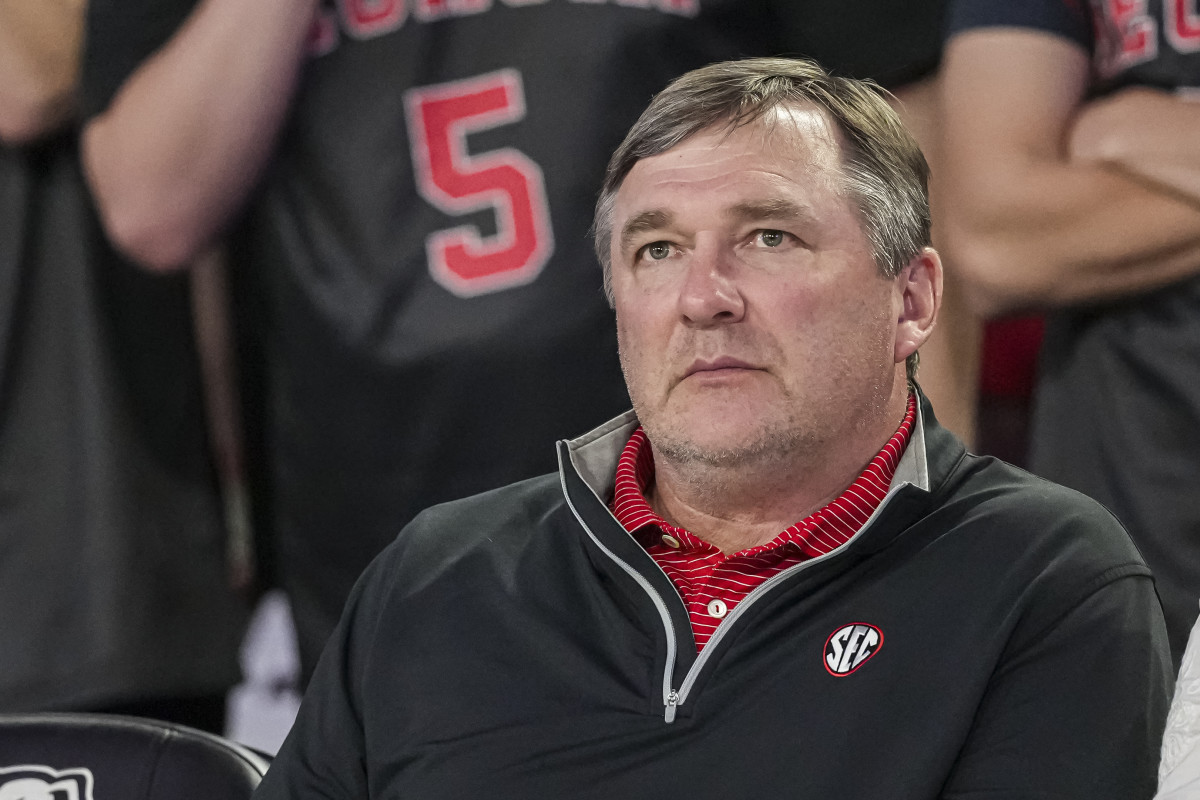Georgia Dealt Shared Disappointing News About the Star’s Running Back
The Georgia Bulldogs, one of the most dominant programs in college football, have encountered unexpected challenges this season as injuries continue to plague their running back corps. With the Bulldogs relying heavily on their rushing attack, the recent setbacks could have significant implications for their championship aspirations. This article explores the latest injuries, their impact on the team, historical precedents, and how Georgia plans to navigate these obstacles moving forward.
Recent Injuries and Their Impact
Branson Robinson’s Season-Ending Injury
In August 2023, sophomore running back Branson Robinson suffered a devastating ruptured patellar tendon during a non-contact practice drill, ruling him out for the entire season. Robinson, a rising star, was expected to be a focal point in Georgia’s ground game following a promising freshman year in which he accumulated 330 rushing yards and three touchdowns.
His absence left Georgia scrambling for replacements. The team had to rely on a committee of running backs, a strategy head coach Kirby Smart has employed in the past but one that requires depth and consistency. Robinson’s physicality and explosiveness were sorely missed in key matchups, particularly against conference rivals.
Trevor Etienne’s Rib Injury
Fast forward to November 2024, and Georgia suffered another blow when junior running back Trevor Etienne sustained a rib injury during practice. A transfer from Florida, Etienne had been instrumental in Georgia’s offense, leading the team with 477 rushing yards and seven touchdowns. His absence was keenly felt in crucial SEC games, most notably against Tennessee, where Georgia struggled to establish a dominant ground attack.
Coach Smart addressed the situation, stating, “We think it occurred during the week of practice last week, but he didn’t take any hits. He was running a route and felt something in there when he planted and pushed.” With Etienne sidelined, Georgia turned to younger backs, putting increased pressure on less experienced players to perform under high-stakes conditions.
Historical Context: Georgia’s Running Back Legacy
Georgia has a storied history of elite running backs, producing legends like Herschel Walker, Todd Gurley, Nick Chubb, and Sony Michel. However, injuries have frequently disrupted seasons.
One of the most notable examples was in 2015 when Nick Chubb suffered a gruesome knee injury on the first play from scrimmage against Tennessee. His absence forced the Bulldogs to rely on Sony Michel, who admirably carried the load but could not singlehandedly replace Chubb’s production.
These injury woes highlight the physical toll that the running back position demands, especially in the SEC, where defenses are among the most physical in the nation. The current setbacks echo past challenges and reinforce the need for a deep, well-rounded running back room.
How Georgia Has Adapted
Depth at the Running Back Position
Despite the setbacks, Georgia has continued to find ways to remain competitive. Freshman Nate Frazier stepped up in Etienne’s absence, showcasing his potential by leading the team with 69 rushing yards and a touchdown against Tennessee. His ability to adapt quickly despite missing spring practice has impressed both coaches and analysts alike.
Other backs, including Andrew Paul and Roderick Robinson, have also been called upon to carry the load. Though not as experienced, these players are gaining valuable reps, which could prove crucial in Georgia’s postseason run.
Coaching Strategies and Adjustments
Kirby Smart and his offensive staff have had to make key adjustments in play-calling to accommodate for the injuries. Georgia has leaned more on quarterback play and short passing schemes to compensate for the weakened running back depth. Additionally, offensive coordinator Mike Bobo has integrated more designed quarterback runs and screen plays to maximize the strengths of his available personnel.
The offensive line has also been crucial in mitigating the impact of these injuries. Georgia’s front five remains one of the best in the country, creating running lanes even when the team is lacking elite-level rushers.
The Road Ahead
Recovery Timelines for Injured Players
Branson Robinson’s patellar tendon injury is one of the more severe setbacks a running back can face. Recovery timelines for such injuries often extend beyond a full season, and Robinson will need extensive rehabilitation to return to full strength. His availability for the 2025 season remains uncertain, though the coaching staff remains optimistic about his long-term future.
Trevor Etienne’s rib injury, while less severe, is tricky to manage. Rib injuries can be incredibly painful and may require several weeks of rest, limiting his ability to contribute late in the season. His return will be crucial for Georgia’s championship push.
Potential Recruiting and Transfer Portal Efforts
Georgia has consistently recruited top-tier running backs, and these injuries could accelerate efforts to bring in reinforcements via the transfer portal. The Bulldogs have already shown interest in multiple high-profile running backs looking for new opportunities.
Additionally, Georgia has several talented recruits in the pipeline, including 5-star running back Jordan Davidson. His commitment would bolster the team’s depth and provide immediate competition in the backfield.
Evolving Offensive Strategies
With the injuries to Robinson and Etienne, Georgia may continue to shift towards a more pass-heavy offense. The emergence of talented wide receivers and a dynamic quarterback could lead to a scheme that resembles past championship-winning teams that relied on a balanced attack.
However, the Bulldogs will not abandon their identity as a power-running team. The coaching staff has a strong history of developing running backs, ensuring that future stars will emerge even amid adversity.
The Georgia Bulldogs have faced numerous challenges with injuries to their star running backs, but their resilience and depth continue to keep them in contention. While the loss of Branson Robinson and Trevor Etienne has forced adjustments, the emergence of young talent and smart coaching strategies provide optimism for the future.
As Georgia moves forward, the health and performance of their running backs will be a key factor in determining their success. With a strong recruiting pipeline, a talented roster, and an experienced coaching staff, the Bulldogs remain well-positioned to overcome these setbacks and compete for another national title.



